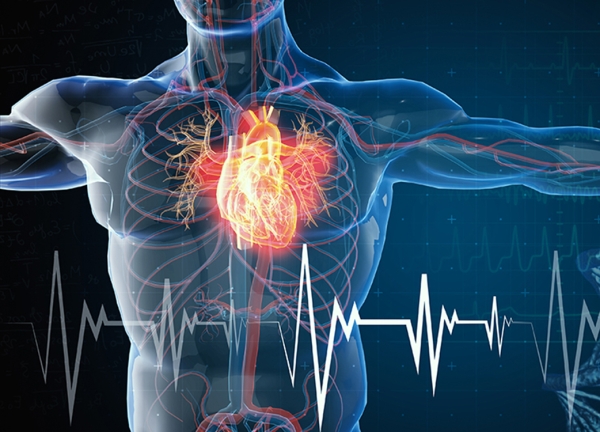Meal planning the heart-smart way: Cardiology Jupiter’s food rules
Recognizing the Value of Cardiology in Modern Healthcare Services
Cardiology plays a crucial duty in modern-day healthcare, especially as cardiovascular disease remains to be the leading source of death worldwide. Developments in diagnostics and therapy have actually transformed client care, enabling earlier treatments and enhanced outcomes. The change in the direction of precautionary cardiology encourages people to manage their health and wellness proactively. As technology proceeds to evolve, the assimilation of cutting-edge options may better redefine cardiology's effect on public health and wellness, prompting a better evaluation of arising patterns and their implications.
The Frequency of Heart Problem and Its Effect On Public Wellness
Heart illness continues to be the leading cause of death worldwide, its effect prolongs much past specific patients to impact public health and wellness systems and economic climates. The high occurrence of cardiovascular disease positions a substantial strain on healthcare resources, necessitating enhanced funding for therapy, prevention, and recovery programs. Public health and wellness initiatives should address risk variables such as weight problems, cigarette smoking, and inactive way of lives, which add considerably to the climbing occurrence of heart conditions.Moreover, the economic burden related to heart illness is immense, incorporating not just straight clinical prices yet also indirect expenditures connected to shed performance and early mortality. Neighborhoods face challenges in managing these costs, typically bring about variations in medical care accessibility and results. As the population ages and lifestyle-related risks remain to escalate, the seriousness for reliable cardiology treatments ends up being critical. Dealing with heart disease is not just an issue of private wellness but likewise a critical public health and wellness concern.
Advancements in Cardiac Diagnostics and Imaging Techniques
Recent developments in cardiac diagnostics and imaging strategies have actually changed the area of cardiology, boosting the capacity to monitor and spot heart problem. Strategies such as heart MRI, CT angiography, and echocardiography have ended up being increasingly sophisticated, providing comprehensive photos of heart structures and features. These modalities permit for the early recognition of conditions like coronary artery condition, cardiac arrest, and valvular disorders.Moreover, innovations in non-invasive diagnostics, such as wearable innovation and remote surveillance tools, have actually equipped clients and healthcare carriers. These tools help with real-time monitoring of heart rhythms and other crucial indicators, bring about prompt treatments. Additionally, synthetic intelligence is being integrated right into imaging evaluation, improving precision and performance in diagnosis.
Innovations in Therapy Choices for Heart Issues
Current improvements in cardiology have brought about substantial developments in therapy options for heart disease. These consist of advanced surgical strategies that enhance step-by-step outcomes and arising medications that provide brand-new opportunities for treatment. As the area progresses, these innovations play an important role in improving individual treatment and end results.
Advanced Surgical Techniques
Innovations in medical strategies have changed the landscape of cardiology, supplying brand-new hope for clients with heart conditions. Minimally invasive treatments, such as catheter-based treatments, have considerably minimized recuperation times and hospital remains. Techniques like robotic-assisted surgical procedure boost precision, allowing surgeons to navigate complicated anatomical structures with better precision. Moreover, improvements in imaging modern technology promote real-time visualization during procedures, enhancing outcomes. Transcatheter aortic valve substitute (TAVR) exemplifies an advancement in dealing with aortic stenosis, enabling valve substitute without open-heart surgical treatment. Additionally, hybrid methods that incorporate surgical and catheter-based methods give customized services for numerous heart problems. These advanced medical strategies not just boost individual safety and security however also broaden treatment choices, underscoring the critical duty of development in modern-day cardiology techniques.
Arising Medications and Treatments
As the landscape of cardiology remains to advance, emerging medicines and treatments play a crucial function in enhancing therapy alternatives for heart conditions. Technologies such as novel anticoagulants and advanced lipid-lowering agents have actually changed the monitoring of cardio illness, greatly decreasing person morbidity and mortality. Furthermore, the development of gene treatments and regenerative medicine provides appealing methods for dealing with problems previously deemed permanent. Scientific trials are consistently disclosing the efficacy of these therapies, pressing the borders of standard therapies. The integration of electronic wellness modern technologies facilitates personalized medication, permitting for tailored therapy plans based on genetic and way of life factors. Jointly, these improvements emphasize the dynamic nature of cardiology, improving person end results and redefining criteria of treatment in modern medical care.
The Duty of Preventive Cardiology in Individual Treatment
Preventative cardiology plays a vital duty in individual treatment by concentrating on the recognition of risk aspects that add to cardiovascular disease. Through way of life adjustment techniques and early discovery techniques, doctor can efficiently decrease the occurrence of cardiovascular occasions - Cardiology. This aggressive technique not just improves person results however likewise promotes long-lasting wellness
Danger Factor Identification
While heart diseases continue to be a leading root cause of morbidity and death worldwide, reliable risk aspect recognition works as a foundation of precautionary cardiology. Determining danger elements such as high blood pressure, diabetic issues, household, and hyperlipidemia background is vital for early treatment. Healthcare specialists utilize different evaluating approaches to assess these variables, allowing for customized preventative actions. In addition, comprehending a client's lifestyle options, such as cigarette smoking and physical lack of exercise, additionally educates threat analyses. This comprehensive assessment enables clinicians to establish personalized care strategies targeted at mitigating risks. By focusing on threat element identification, health care systems can enhance individual outcomes and minimize the general worry of cardio diseases, eventually adding to improved public health and wellness methods and resource allowance.
Lifestyle Adjustment Techniques
A multitude of researches highlights the vital role of lifestyle adjustment methods in decreasing heart disease risk. These approaches include nutritional changes, boosted exercise, cigarette smoking cessation, and weight management. By embracing a heart-healthy diet rich in fruits, veggies, entire grains, and lean proteins, people can decrease cholesterol degrees and blood pressure. Routine exercise enhances the heart and improves general cardiovascular wellness. In addition, giving up smoking cigarettes significantly lowers the danger of heart condition and boosts recuperation prices for those with status quo. Weight monitoring additionally contributes to cardiovascular health and wellness by mitigating other danger variables such as diabetes mellitus and hypertension. Implementing these way of living alters not only advertises individual wellness however likewise offers as a keystone of preventive cardiology in individual treatment.
Very Early Discovery Methods
Way of living adjustments greatly add to minimizing cardiovascular disease dangers, yet they are most efficient when coupled with very early discovery strategies. Preventive cardiology stresses the importance of identifying prospective heart concerns prior to they rise right into serious conditions. Methods such as blood pressure tracking, cholesterol testing, and progressed imaging technologies like echocardiograms play critical duties in assessing cardiovascular health. Biomarkers and genetic testing also improve the accuracy of very early discovery, enabling for customized preventative approaches. Normal cardiac risk anonymous examinations empower health care service providers to step in proactively, possibly avoiding cardiovascular disease and strokes (Cardiology care). By incorporating these very early discovery methods right into regular care, people can take advantage of timely way of life treatments and targeted treatments, inevitably enhancing and improving end results lifestyle
Integrating Modern Technology Into Cardiology Practices
As innovations in innovation proceed to improve different fields, the integration of ingenious devices and systems into cardiology techniques has ended up being essential for enhancing individual treatment and results. Telemedicine systems permit cardiologists to keep an eye on people remotely, improving accessibility to care while reducing the burden on healthcare centers. Wearable tools, such as smartwatches, make it possible for continuous heart price monitoring, signaling both medical professionals and patients to prospective concerns in real-time. Additionally, fabricated intelligence (AI) is being made use of to analyze substantial quantities of heart data, assisting in very early medical diagnosis and tailored therapy plans. Advanced imaging techniques, consisting of 3D echocardiography, improve visualization of heart structures, causing much more precise treatments. Digital health and wellness documents (EHRs) enhance patient information management, ensuring that cardiologists have prompt access to important data. With each other, these technological innovations are transforming cardiology, advertising aggressive administration and improved health and wellness outcomes for people with cardiovascular problems.
The Relevance of Individual Education And Learning and Interaction
Patient education and interaction play a critical role in the monitoring of cardio health and wellness. By gearing up clients with knowledge about their conditions, treatment choices, and lifestyle changes, health care service providers equip people to take an active duty in their treatment. This aggressive strategy can result in improved adherence to suggested medications, dietary changes, and exercise routines, eventually reducing the risk of complications.Engagement likewise cultivates a solid patient-provider relationship, urging open communication and trust fund. When patients really feel informed and entailed, they are more probable to voice problems and ask questions, which can result in far better professional results. In addition, academic sources, such as workshops or digital platforms, can boost understanding and advertise self-management techniques. On the whole, focusing on patient education and involvement is vital for enhancing cardiovascular health, enhancing lifestyle, and minimizing health care prices associated with heart diseases.
Future Patterns in Cardiology and Their Possible Influence

Frequently Asked Questions
What Way Of Living Modifications Can Decrease Cardiovascular Disease Risk?
The existing concern addresses lifestyle adjustments that can substantially minimize cardiovascular disease threat. Cardiologist near me. Taking on a balanced diet visit here regimen, taking part in regular exercise, preserving a healthy weight, taking care of tension, and avoiding cigarette can notably boost cardiovascular wellness
Exactly How Can I Identify Very Early Indicators of Heart Issues?
Recognizing early signs of heart issues includes tracking signs and symptoms such as chest discomfort, shortness of breath, tiredness, and irregular heart beat. Timely understanding of these indicators can prompt necessary clinical evaluation and treatment for far better outcomes.
What Are the Distinctions In Between Cardiologists and Cardiac Surgeons?
The differences in between cardiologists and heart surgeons exist in their roles; cardiologists primarily manage and identify heart disease with non-invasive approaches, while cardiac surgeons carry out medical procedures to fix architectural heart issues. Each plays a crucial, distinctive function.

How Often Should I Obtain My Heart Health Checked?
The regularity of heart health checks differs based on specific risk factors. Usually, adults must go through analyses every one to two years, while those with status quo may require even more frequent assessments as advised by healthcare experts.
What Duty Does Genes Play in Cardiovascular Disease Risk?
Genetics considerably affects heart problem danger, with familial patterns indicating acquired conditions. Particular genes can incline individuals to high blood pressure, cholesterol concerns, and other cardiovascular issues, highlighting the relevance of hereditary testing in reviewing heart health and wellness. Heart condition continues to be the leading cause of death globally, its impact extends much past specific patients to impact public health systems and economic situations. Public health initiatives have to resolve danger elements such as obesity, smoking, and inactive way of livings, which add significantly to the increasing occurrence of heart conditions.Moreover, the check out this site economic worry linked with heart disease is enormous, incorporating not only direct medical expenses yet likewise indirect expenditures associated to lost efficiency and premature mortality. Preventive cardiology plays a necessary role in person treatment by concentrating on the identification of risk variables that contribute to heart disease. Fabricated knowledge (AI) and machine discovering are boosting diagnostics and client tracking, enabling early detection of heart illness. The differences in between cardiologists and heart surgeons lie in their roles; cardiologists primarily take care of and identify heart problems with non-invasive approaches, while heart cosmetic surgeons perform surgical procedures to remedy structural heart problems.